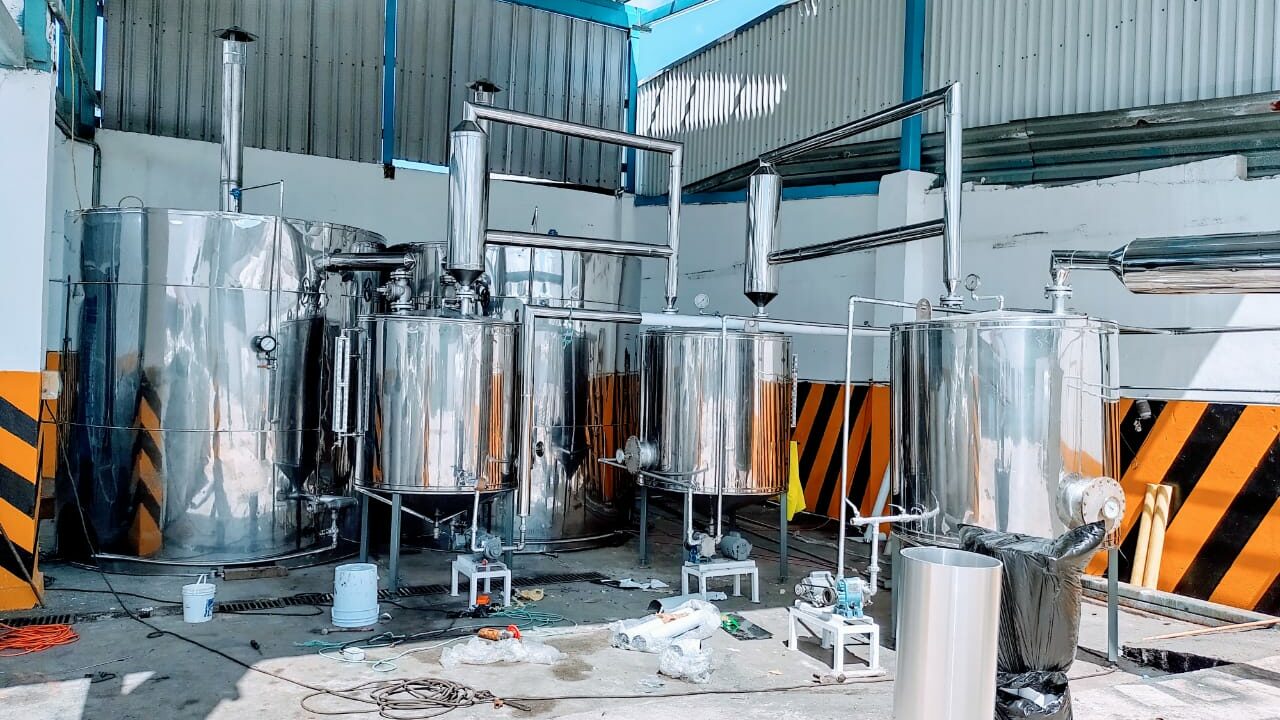The company’s patented distillation method has torn down traditional barriers to recycling. Now it aims to scale up capacity to try and make a significant change to the crisis of plastics pollution.
The unchecked development in Mexico’s star Caribbean destination has helped produce one unsightly factoid that tourists never see on the brochure: Cancún produces more than 330 tons of plastic waste per day.
And just like elsewhere in the world, the majority of this waste is destined to contribute to the global crisis of plastic pollution.
But one Cancún company is determined to make a difference — and a profit — by turning that waste into gasoline and other petroleum-based fuels.
Petgas uses the process known as pyrolysis to convert plastic waste that would most likely end up polluting the environment into six different kinds of fuel.
In addition to gasoline, the compact plant just outside the city center turns plastic from soda bottles, PVC piping, face masks, supermarket bags, styrofoam and even old appliances like televisions and oscillating fans into high-octane gasoline, diesel, kerosene, butane, propane and paraffin.
“You look at this bottle and you see a bottle, but if you have more experience with plastics, you call it PET,” said Petgas CEO Pablo Fabian Chico, holding up a bottle of water from the Coca-Cola-owned brand Ciel.
“This reveals the complexity of recycling. Most labels are made of polypropylene. The caps are high density polyethylene. In some cases, even the ring of the cap will be a different plastic. So just imagine the classification of this one bottle. This complicates plastics recycling.”
This complication is the primary reason that recycling has repurposed only a meager 9% of all the plastics ever produced, according to the United Nations. It makes the separation necessary for traditional recycling difficult and cost inefficient.

Through an innovative process of pyrolysis by distillation patented by Petgas’ head of technology Jesús Edgar Padilla Rodríguez, the company has been able to overcome this barrier to recycling.
And the fuels it produces are of a higher quality than those made from crude oil, since many impurities have already been removed in the production of the plastics Petgas uses as raw material.
Petgas gasoline is free of heavy metals and contains just a fifth of the sulfur found in other premium gasolines.
“Just think of being able to transform this product that’s going to last a thousand years into a high-octane, high-performance fuel,” said Chico.
But fuel isn’t the only thing the company produces from plastic, according to Chico.
“We also turn plastic into food,” he said, surrounded by 10-foot heaps of discarded detergent bottles and abandoned children’s toys at the company’s collections and processing center. “We’re transforming it into an equitable energy.”
In addition to the plant’s 70 employees, he extended Petgas’ socioeconomic benefit to the people who sell the raw material directly to the company, many of whom arrive at the center on cargo tricycles filled with plastics collected from the streets and garbage cans and depend on the income for their daily sustenance.
CLICK HERE FOR FULL ARTICLE BY CODY COPELAND ON COURTHOUSE NEWS SERVICE
TYT Newsroom




2 comments
Great move making money out of trash. You got the headstart since you are the first in the whole continent to do this. But do this now before other states compete for your resource. Great job!!
Plastic waste is being turned into fuel. Plastic waste is a big problem, and it has become so vast that it’s being seen as more of a problem than solution. Plastic waste contains toxins that, when burned, release carcinogens into the air and contaminate water supplies.